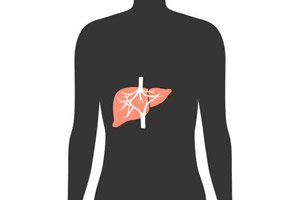
All iLive content is medically reviewed or fact checked to ensure as much factual accuracy as possible.
We have strict sourcing guidelines and only link to reputable media sites, academic research institutions and, whenever possible, medically peer reviewed studies. Note that the numbers in parentheses ([1], [2], etc.) are clickable links to these studies.
If you feel that any of our content is inaccurate, out-of-date, or otherwise questionable, please select it and press Ctrl + Enter.
Can a liver be transplanted from a pig to a human?
Last reviewed: 02.07.2025
 ">
">Organ transplantation is a pressing issue, as it could save many lives. The problem is that there are not enough organs, and if there are, they are not always compatible: for a correct transplant, it is important to take into account not only anatomical but also biochemical indicators. In this case, immune compatibility is of the greatest importance, so that the transplant is not rejected in another organism. Almost all living structures have their own set of molecules, according to which the immune system distinguishes its own cells from "foreigners". This mechanism is important, in particular, for combating infectious or tumor processes. However, in terms of transplantation, it plays an undesirable role.
With the active development of biotechnological technologies, it became possible to use animal organs for transplantation – in particular, pigs. The size and physiological indicators of such organs are almost identical, and scientists have long been coping with genetic features using cell technology and genetic editing techniques. Such methods are being introduced gradually. Trials have already been conducted on transplanting organ modifications to macaques, and now it is time to involve people.
The first experiments were already performed on patients who were in a state of clinical death. Their brain structures no longer worked, and there was no hope for survival. One of these patients underwent a transplant of a six-fold modified pig liver. The patient's own liver was not removed, but only a pig's was attached. No rejection reactions were observed for ten days after the attachment: the pig's organ successfully performed its function and produced approximately 30 ml of bile daily. Scientists are planning to conduct a repeat experiment soon, but with a complete liver transplant. The human organ will be removed and replaced with a pig's.
Today, experts are not sure that pig organ transplantation can be carried out on a permanent basis. Most likely, the operation will be temporary: the liver will be transplanted for a certain period of time, so that later it will be possible to select a suitable human organ. But, be that as it may, such operations are a major breakthrough in medicine and transplantology: an animal organ was transferred to a human body, which fully accepted it, both anatomically and functionally.
By the way, almost at the same time, scientists performed an operation to transplant a modified pig kidney into a human. True, in this case there were significantly more modifications - more than sixty. So far, the recipient's body is functioning normally: the transplanted organ is working successfully, rejection is not recorded. Specialists are already giving good prognoses. It is expected that the transplant will function without failures, at least for a couple of years.
Previously, scientists tried to transplant a pig's heart, but without success. It is unknown whether such experiments will continue.
Read more about the research on the Nature journal page
